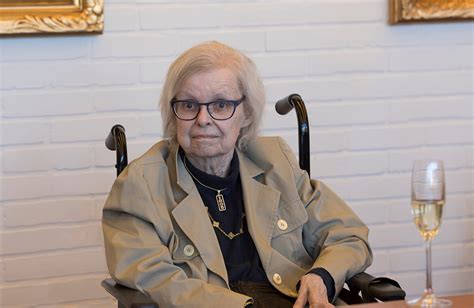A Quote by Stefan Zweig
In my youth and comparative inexperience I had always regarded the yearning and pangs of love as the worst torture that could afflict the human heart. At this moment, however, I began to realize that there was another and perhaps grimmer torture than that of longing and desiring: that of being loved against one's will and of being unable to defend oneself against the urgency of another's passion; of seeing another human being seared by the flame of her desire and of having to look impotently, lacking the power, the capacity, the strength to pluck her from the flames.
Quote Topics
Against
Always
Another
Began
Being
Being Loved
Capacity
Comparative
Could
Defend
Desire
Flame
Flames
Had
Having
Heart
Her
However
Human
Human Being
Human Heart
Inexperience
Lacking
Longing
Look
Love
Loved
Moment
Oneself
Passion
Perhaps
Pluck
Power
Realize
Regarded
Seeing
Strength
Than
Torture
Unable
Urgency
Will
Worst
Yearning
Youth
Related Quotes
The unqualified truth is, that when I loved Estella with the love of a man, I loved her simply because I found her irresistible. Once for all; I knew to my sorrow, often and often, if not always, that I loved her against reason, against promise, against peace, against hope, against happiness, against all discouragement that could be. Once for all; I love her none the less because I knew it, and it had no more influence in restraining me, than if I had devoutly believed her to be human perfection.
I believe in recognizing every human being as a human being--neither white, black, brown, or red; and when you are dealing with humanity as a family there's no question of integration or intermarriage. It's just one human being marrying another human being or one human being living around and with another human being.
In fact her maturity and blood kinship converted her passion to fever, so it was more affliction than affection. It literally knocked her down at night, and raised her up in the morning, for when she dragged herself off to bed, having spent another day without his presence, her heart beat like a gloved fist against her ribs. And in the morning, long before she was fully awake, she felt a longing so bitter and tight it yanked her out of a sleep swept clean of dreams.
When you meet another human being, you meet the physical self, then you meet the psychological self that's behind it, which is their mental conditioning, their patterns of behavior and so on. And then, there is a deeper level to every human being that transcends all of that. I can only sense that in another human being and relate to another human being on that deeper level if I have gone deep enough within myself.
The aim of torture is to destroy a person as a human being, to destroy their identity and soul. It is more evil than murder... Today we know that survivors of torture can be helped to regain their health and strength, and in helping them we take the weapon from their torturers. They sought the destruction of other human beings. We have proved that they have not succeeded.
...being human always points, and is directed, to something, or someone, other than oneself—be it meaning to fulfill or another human being to encounter. The more one forgets himself—by giving himself to a cause to serve or another person to love—the more human he is and the more he actualizes himself.... What is called self-actualization is not an attainable aim at all, for the simple reason that the more one would strive for it, the more he would miss it. In other words, self-actualization is possible only as a side-effect of self-transcendence.
I think the only way one can really determine whether extremism in the defense of liberty is justified, is not to approach it as an american or a european or an African or an Asian, but as a human being. If we look upon it as different types, immediately we begin to think in terms of extremism being good for one and bad for another, or bad for one and good for another. But if we look upon it, if we look upon ourselves as human beings, I doubt that anyone will deny that extremism in defense of liberty, the liberty of any human being, is no vice.
Human love, human trust, are always perilous, because they break down. The greater the love, the greater the trust, and the greater the peril, the greater the disaster. Because to place absolute trust on another human being is in itself a disaster, both ways, since each human being is a ship that must sail its own course, even if it go in company with another ship.... And yet, love is the greatest thing between human beings.
A hideous ecstasy of fear and vindictiveness, a desire to kill, to torture, to smash faces in with a sledge hammer, seemed to flow through the whole group of people like an electric current, turning one even against one's will into a grimacing, screaming lunatic. And yet the rage that one felt was an abstract, undirected emotion which could be switched from one object to another like the flame of a blowlamp.
The will of a wealthy New York woman, in addition to distributing her worldly goods to her children, left them the following advice: Love one another. Hold fast to that whether you understand one another or not, and remember nothing really matters except being kind to one another in the name of Christ and to all the world as far as you can reach.


































